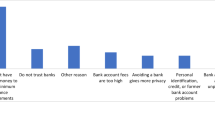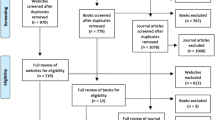Abstract
There is a need for better financial advice. Financial advisors are not able to give accurate financial advice if clients are not completely truthful. This paper aims to analyse the perceptions of financial advisors regarding client truthfulness when disclosing sensitive financial information. Providing sensitive information, for example income, expenses, level of debt, and medical information, could create feelings of discomfort or embarrassment for both the financial advisor and client. A total of 364 useable questionnaires were returned via an online link sent through a community network email to all members of the industry standard-setting organisation in South Africa. Financial advisors perceive their clients to be more untruthful about sensitive topics such as debt, expenses, and knowledge about their finances. Debt, medical history, and their knowledge about their finances were found to be indicators of embarrassment. The financial advisors indicated their optimism regarding clients' untruthfulness, which is that they need time to build the trust relationship and will subsequently open up. This specific result suggests that the advisors are open to building long-term relationships with clients that can last several years.
Similar content being viewed by others
References
Atwood, J.D. 2012. Couples and Money: The Last Taboo. American Journal of Family Therapy 40 (1): 1–19.
Aurier, P., and G. N’Goala. 2010. The differing and mediating roles of trust and relationship commitment in service relationship maintenance and development. Journal of the Academy of Marketing Science 38 (3): 303–325.
Beach, E. 2011. Nudging Testators Toward Holistic Estate Planning: Overcoming Social Squeamishness on the Subjects of Money and Mortality. Ohio St. J. on Disp. Resol. 26: 701.
Botha, M., Du Preez, L., Geach, W., Goodall, B., Palframan, J. and Rossini, L. (2019), Fundamentals of Financial Planning 2019, edited by Rabenowitz, P., LexisNexis, Johannesburg.
Christiansen, T. and De Vaney, S.A. (1998)cAntecedents of trust and commitment in the financial planner-client relationship. Journal of Financial Counseling and Planning, Vol. 9 No. 2, pp. 1–10.
Cooper, D., and P. Schindler. 2014. Business Research Methods, 12th ed. New York: McGraw Hill.
Cull, M. 2009. The Rise of the Financial Planning Industry. Australasian Accounting Business & Finance Journal 3 (1): 26–37.
Cull, M., and T. Sloan. 2016. Characteristics of Trust in Personal Financial Planning. Financial Planning Research Journal 2 (1): 12–35.
Dubofsky, D., and L. Sussman. 2009. The changing role of the financial planner (part 1) From financial analytics to coaching and life planning. Journal of Financial Planning 11 (118): 38–41.
Eisingerich, A.B., and S.J. Bell. 2008. Perceived service quality and customer trust: Does enhancing customers’ service knowledge matter? Journal of Service Research 10 (3): 256–268.
Eklund, M. 2013. Theories of truth. Routledge Companion to Philosophy of Language, Available at. https://doi.org/10.4324/9780203206966-25.
FPSB. 2019. Financial Planning Standards Board. Available at: https://www.fpsb.org/about-financial-planning/value-financial-planning. Accessed 5 Nov 2019.
Hochschild, A. (2017) Money and Emotion. in Bandelj, N., Wherry, F.F. and Zelizer, V.A. (Eds.), Money Talks: Explaining How Money Really Works, Princeton University Press, pp. 161–170.
Johnson, D., and K. Grayson. 2005. Cognitive and affective trust in service relationships. Journal of Business Research 58 (4): 500–507.
Klontz, B., Britt, S.L., Mentzer, J. and Klontz, T. (2011) Money Beliefs and Financial Behaviors: Development of the Klontz Money Script Inventory. Journal of Financial Therapy, Vol. 2 No. 1, available at:https://doi.org/10.4148/jft.v2i1.451.
Lamprecht, I. (2017) The six steps of financial planning.Moneyweb, available at: https://www.moneyweb.co.za/mymoney/moneyweb-financial-planning/the-6-steps-of-financial-planning/.
Lewis, J.D., and A. Weigert. 1985. Trust as a social reality. Social Forces 63 (4): 967–985.
McArthur, L.Z., and R.M. Baron. 1983. Toward an ecological theory of social perception. Psychological Review 90 (3): 215–238.
Mcknight, D.H., Cummings, L.L. and Chervany, N.L. (1998). Initial Trust Formation in New Organizational Relationships Author ( s ): D . Harrison McKnight , Larry L . Cummings and Norman L . Chervany Source : The Academy of Management Review , Vol . 23 , No . 3 ( Jul ., 1998 ), pp . 473–490 Published by : Academy. The Academy of Management Review, Vol. 23 No. 3, pp. 473–490.
Merriam-Webster. (2015) Dictionary and Thesaurus | Merriam-Webster. Merriam-Webster.
Meyerson, D., Weick, K.E. and Kramer, R.M. (1996) Swift Trust and Tempirary Groups. Trust in Organizations: Frontiers of Theory and Research, pp. 166–195.
Morgan, R.M., and S.D. Hunt. 1994. The Commitment-Trust Theory of Relationship Marketing. Journal of Marketing 58 (3): 20.
Mouzas, S., S. Henneberg, and P. Naudé. 2007. Trust and reliance in business relationships. European Journal of Marketing 41 (9–10): 1016–1032.
Ng’ang’a, M.J. and Nyongesa, W. 2012. The Impact of Organisational Culture on Performance of Educational Institutions. International Journal of Business and Social Science 3 (8): 211–217.
Oxford English Dictionary. (2017) Oxford English Dictionary Online. Oxford English Dictionary.
Pickens, J. 2005. Attitudes and Perceptions. In Organizational Behavior in Health Care, ed. N. Borkowski, 43–76. Sudbury: Jones and Bartlett Publishers.
Robert, L., A. Denis, and Y.T. Hung. 2009. Individual swift trust and knowledge-based trust in face-to-face and virtual team members. Journal of Management Information Systems 26 (2): 241–279.
Sekhon, H., C. Ennew, H. Kharouf, and J. Devlin. 2014. Trustworthiness and trust: Influences and implications. Journal of Marketing Management, Routledge 30 (3–4): 409–430.
Sharpe, D.L., C. Anderson, A. White, S. Galvan, and M. Siesta. 2007. Specific elements of communication that affect trust and commitment in the financial planning process. Journal of Financial Counseling and Planning 18 (1): 2–17.
Shulman, L. 2008. Learning to Talk About Taboo Subjects: A Lifelong Professional Challenge. Social Work Wtih Groups 25: 139–150.
Sussman, L., and D. Dubofsky. 2009. The changing role of the financial Planner Part 1: From financial analytics to coaching and life planning. Journal of Financial Planning 22 (9): 50–56.
Trachtman, R. 1999. The money taboo: Its effects in everyday life and in the practice of psychotherapy. Clinical Social Work Journal 27 (3): 275–288.
Verhoeven, B. (2009) The effects of swift trust, real trust and an interaction effect on the willingness to share knowledge. No. August.
Wang, L., and J.K. Murnighan. 2014. Money, Emotions, and Ethics Across Individuals and Countries. Journal of Business Ethics 125 (1): 163–176.
Wilcox, J.W., and F.J. Fabozzi. 2013. Financial Advice and Investment Decisions: A Manifesto for Change, vol. 195. John Wiley & Sons.
Xiao, J.J., and B. O’Neill. 2018. Mental accounting and behavioural hierarchy: Understanding consumer budgeting behaviour. International Journal of Consumer Studies 42 (4): 448–459.
Yeske, D., and E. Buie. 2017. Chapter 15: Psychological Aspect of Financial Planning. In Financial Behavior: Players, Services, Products, and Markets, ed. H.K. Baker, G. Filbeck, and V. Ricciardi, 265–284. New York: Oxford University Press.
Author information
Authors and Affiliations
Corresponding author
Additional information
Publisher's Note
Springer Nature remains neutral with regard to jurisdictional claims in published maps and institutional affiliations.
Rights and permissions
About this article
Cite this article
Alsemgeest, L. The truth will set you free: the perception of South African financial advisors regarding clients' truthfulness when sharing information. J Financ Serv Mark 27, 221–231 (2022). https://doi.org/10.1057/s41264-021-00115-y
Received:
Revised:
Accepted:
Published:
Issue Date:
DOI: https://doi.org/10.1057/s41264-021-00115-y




